My Father
Harold Gandy, my father, was one of the 15 children born to Mary Agnes Murphy and William Stephen Gandy, who married in 1901. They were both descended from Irish parents. The family lived in the Simms Cross area of Widnes, which is half-way down to the river from the village of Farnworth. Their home was in Midwood Street, now demolished, and close to the industrial part of the town. Dad was born in 1909.
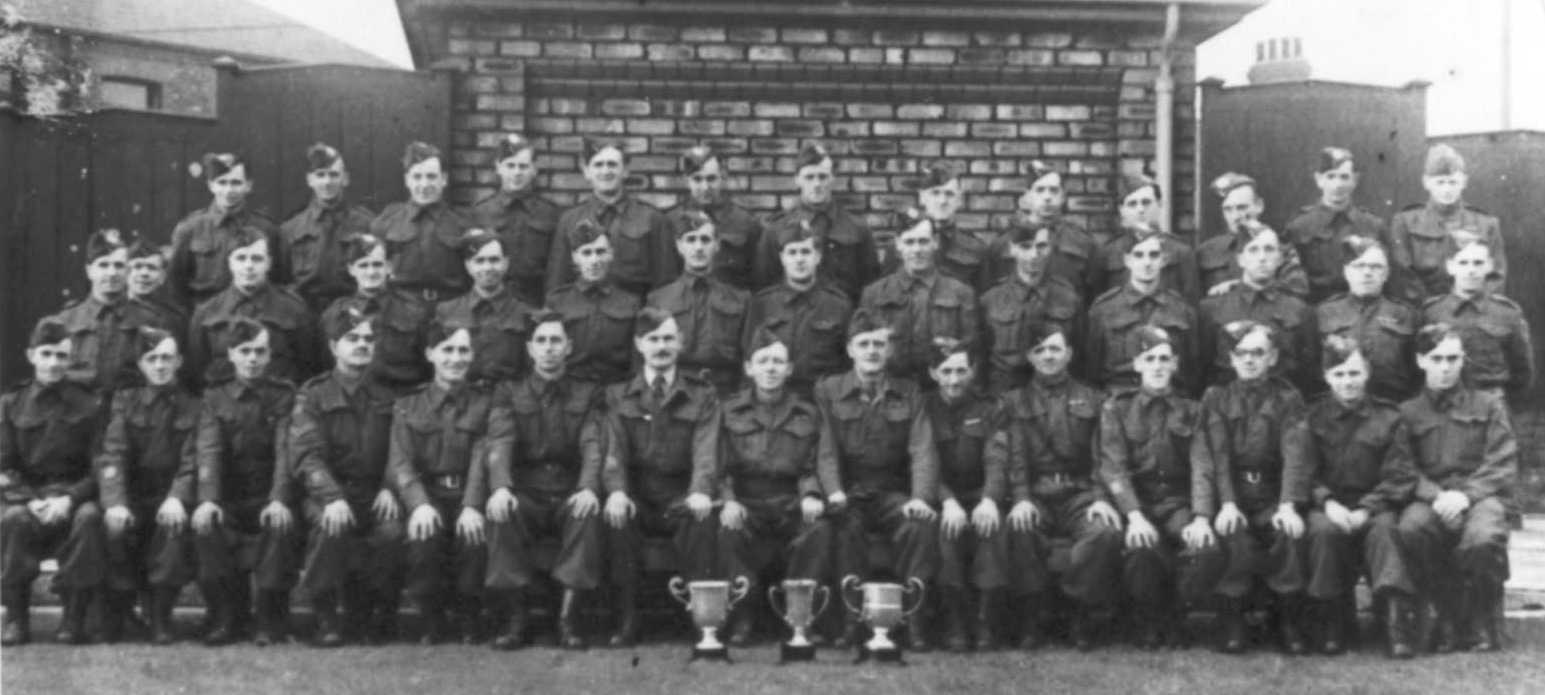 Widnes Home Guard
Widnes Home Guard
Harold Gandy back row, 5th from right, William (Bill) Taylor front row, 6th from left.
Dad’s War Effort
Before the war my father Harold Gandy worked on the steam winder at the shaft head 0f Cronton Colliery, seen on the photograph below to the right of the chimneys. The steam winder lowers the lift at the pit head which takes the miners down the shaft, and brings them back up again.

Mum was a nurse at Whiston Hospital when Dad worked at Cronton Colliery, near Whiston. Perhaps this is where they met.
He was 29 years old when the war started in 1939. The picture below was taken in 1940 – the same year when wife Minnie Taylor Gandy worked at the Rainhill War Hospital.
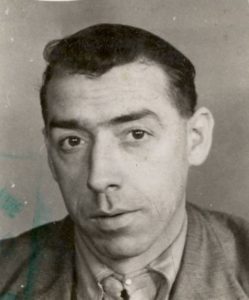
Dad was exempted from military service during the war as he was employed in a strategic industry for the war effort. In 1928 he started at the Pilkington-Sullivan factory in Widnes, part of Imperial Chemicals Limited (ICI). “Pilks”, as it was called, was located down by the River (Mersey). Dad was 18 years old when he started at Pilks and was employed there for 30 years before getting his gold watch.

During the War Dad was in the Home Guard – see photograph above. Duties included guarding the pipelines across the River Mersey which were used to supply the chemical industry in Widnes with salt from the Cheshire salt mines. The Home Guard also manned the anti-aircraft guns which were intended to protect the chemical plants in the town from German bombers. They were equipped with Swedish Bofors anti-aircraft guns, called “Boffers” or “Ack Ack guns”.
He was also a member of the ICI Pilkington Sullivan Air Raid Precautions (A.R.P.) Service. The main task of the A.R.P. was to protect civilians, uphold the blackout and help the auxiliary services such as fire brigade. Read more about the ARP here: Air Raid Precautions.
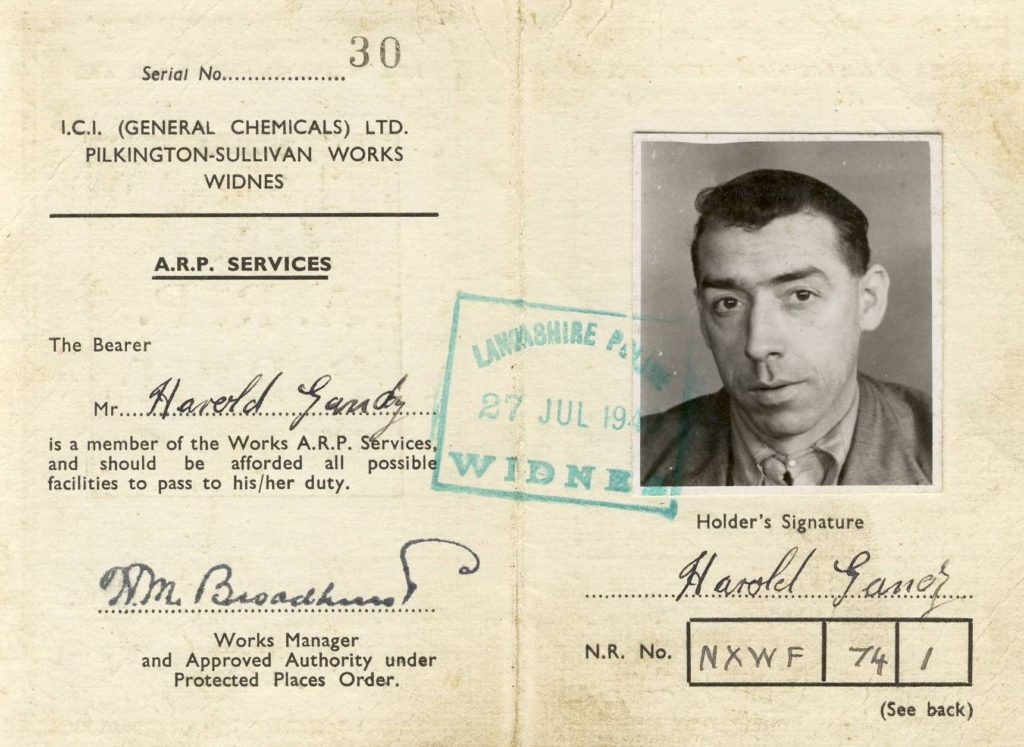
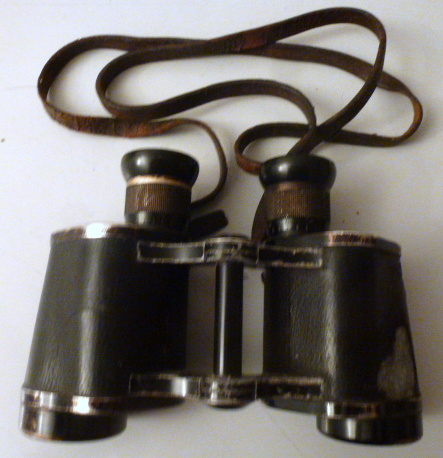
The Machine Shop
The machine shop at Pilks was Dad´s workplace. He was not directly involved in chemical production but it was the work of the fitters and maintenance staff to keep the factory going.
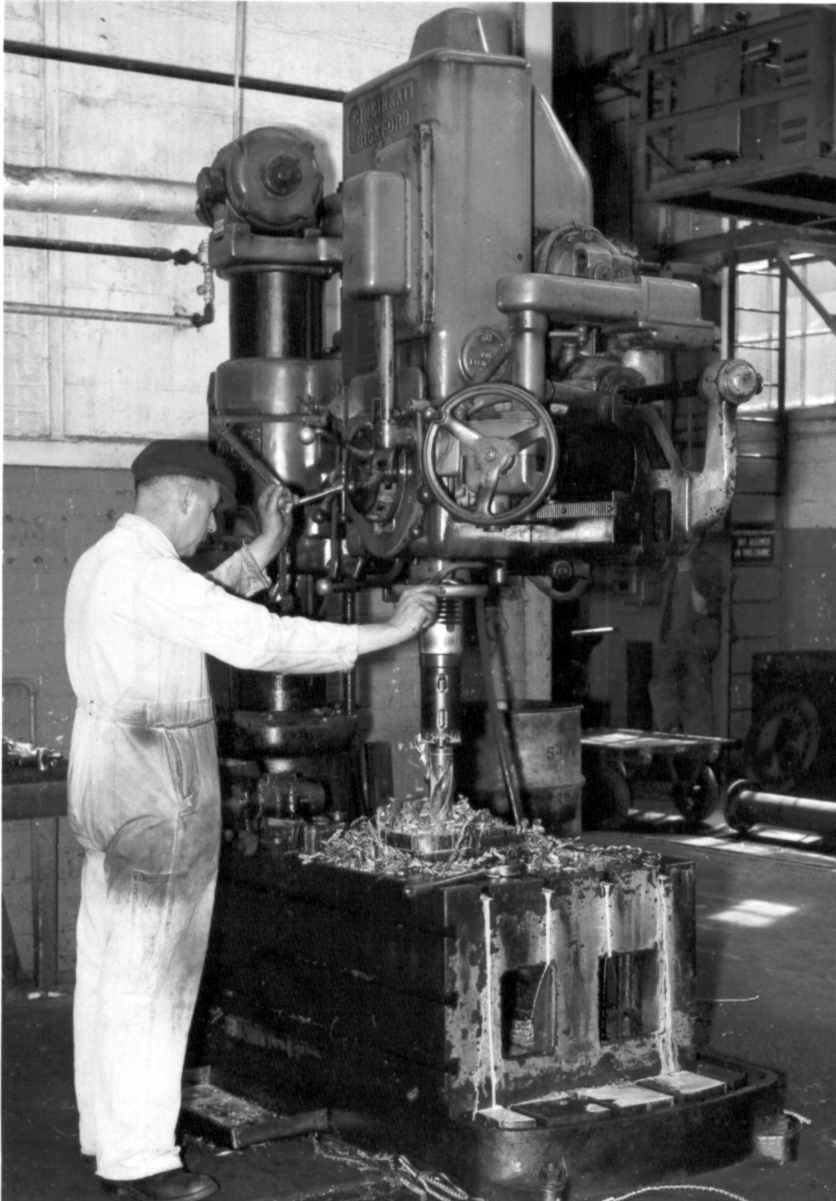
Dad played cricket too
Dad and Uncle Bill played on the same cricket team in their younger days, the Pilks works team. Dad kneeling second from left, Bill standing third from right.

Dad’s Retirement
Dad retired from ICI Pilks for health reasons due to the adverse effects of the chemicals. Mum`s older brother Bill Taylor did the retirement presentation – he worked in the offices there.
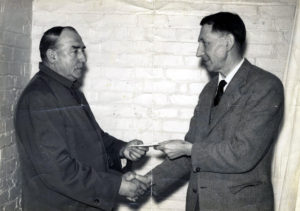
Parks Department
After retirement from the ICI, Dad was employed as a groundsman by the Halton Borough Parks Department at the Victoria Gardens along the River Mersey promenade, and the playing fields and bowling green at Crow Wood. He also found time to cut the lawns and tend gardens for older residents on the Crow Wood Estate, across the “Bongs” from his home in Derby Road, Farnworth.

Dad died in April 1989, a few weeks after Mum. He was 79 years old.
Mum and Dad were cremated and their ashes spread in the garden of remembrance in Widnes Cemetery, just along the Derby Road in Farnworth Village where they lived most of their lives.